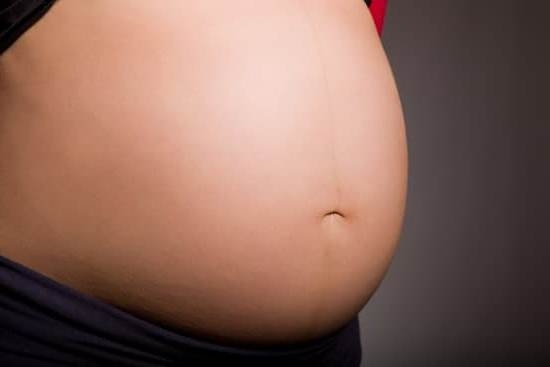Signs Ectopic Pregnancy
An ectopic pregnancy is a pregnancy in which the embryo implants outside the uterus. Most ectopic pregnancies occur in the fallopian tubes, but they can also implant in the ovary, cervix, or abdomen.
Symptoms of an ectopic pregnancy vary depending on where the embryo implants, but may include pain in the abdomen or pelvis, vaginal bleeding, and dizziness. If the embryo implants in the fallopian tube, the tube may rupture, causing severe pain and bleeding.
An ectopic pregnancy is diagnosed with a pregnancy test and an ultrasound. Treatment typically involves surgery to remove the embryo and the affected fallopian tube.
Ectopic pregnancies occur in about 1 out of every 50 pregnancies. They are more common in women who have had fertility treatments or who have had a previous ectopic pregnancy.
Can Abdominal Pain Be A Sign Of Pregnancy
?
Many women experience abdominal pain during early pregnancy. This pain can be due to a number of different factors, including the stretching of the uterus, constipation, and gas. While it is not always possible to determine the cause of abdominal pain, there are a few things you can do to help alleviate the discomfort.
In most cases, the pain will go away as the pregnancy progresses. However, if the pain is accompanied by other symptoms, such as vaginal bleeding or cramping, you should consult your doctor immediately.
The Earliest Signs Of Pregnancy
The earliest signs of pregnancy are often difficult to detect. Many women do not realize they are pregnant until they are several weeks along. There are, however, several signs and symptoms that may indicate that you are pregnant.
The most common early sign of pregnancy is a missed period. If you have missed a period and you have been sexually active, you should take a home pregnancy test. Other signs of early pregnancy include nausea, vomiting, fatigue, and frequent urination.
If you are experiencing any of these symptoms, you should see your doctor. He or she will be able to confirm whether or not you are pregnant. If you are pregnant, your doctor will likely recommend that you begin taking prenatal vitamins.
Signs Of Healthy Pregnancy
There are many obvious signs of a healthy pregnancy, such as a growing belly and regular trips to the bathroom. However, there are also some less obvious signs that can indicate a healthy pregnancy.
One sign of a healthy pregnancy is a rise in body temperature. A woman’s basal body temperature, or BBT, will rise slightly during early pregnancy. This temperature increase is caused by the hormone progesterone, which is produced in large amounts during pregnancy.
Another sign of a healthy pregnancy is an increase in the amount of cervical mucus. Cervical mucus helps to protect the uterus from infection and helps sperm travel to the egg. Cervical mucus will increase in amount and become thinner and more slippery during early pregnancy.
A healthy pregnancy is also often accompanied by a feeling of well-being. Many women feel energetic and excited during early pregnancy. Some women also experience a sense of euphoria, called “pregnancy glow.”
While there are many signs of a healthy pregnancy, there are also some warning signs that may indicate a problem. Warning signs of a problem pregnancy include a sudden decrease in the amount of cervical mucus, a sudden increase in body temperature, and severe morning sickness. If a woman experiences any of these warning signs, she should contact her doctor immediately.
Presumptive Pregnancy Signs
There are many presumptive pregnancy signs that can point to the fact that a woman is pregnant. While some of these signs may be misleading, others are more reliable indicators of pregnancy. The most common signs of pregnancy are nausea, fatigue, and a missed period. Other signs that may occur early in pregnancy include frequent urination, food cravings, and mood swings.
Nausea and vomiting are often the first signs of pregnancy that a woman experiences. This is due to the increase in the hormone human chorionic gonadotropin (hCG) that occurs after conception. hCG is responsible for the nausea and vomiting that is often associated with early pregnancy.
Fatigue is another common sign of early pregnancy. This may be due to the changes in the hormone levels that occur after conception. Additionally, the growing fetus requires more energy and nutrients, which can lead to fatigue.
A missed period is the most reliable sign of pregnancy. However, not all women experience a missed period when they are pregnant. Additionally, other factors such as stress, illness, and changes in diet can also cause a missed period.
Frequent urination is another common sign of early pregnancy. This may be due to the increase in the hormone progesterone, which causes the kidneys to work harder and produce more urine.
Food cravings and aversions are also common during early pregnancy. This may be due to the changes in the hormone levels that occur after conception. Additionally, the growing fetus requires more nutrients, which can lead to cravings for certain foods.
Mood swings are also common during early pregnancy. This may be due to the changes in the hormone levels that occur after conception. Additionally, the growing fetus can cause emotional changes.

Welcome to my fertility blog. This is a space where I will be sharing my experiences as I navigate through the world of fertility treatments, as well as provide information and resources about fertility and pregnancy.





